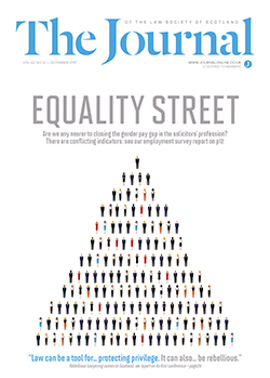Rights of the funded

Employment status disputes in the “gig economy” between individuals and large businesses such as Pimlico Plumbers, Hermes, Citysprint and Uber have created a developing battleground for a number of years, focusing on the availability, or not, of employment rights. There is, however, an intriguing status dispute taking place in the business of sport, which could have a very wide ranging impact.
These employment status cases, typically arising from an individual being branded as self-employed in a complex contractual document, which is challenged as unrepresentative of the true nature of the working relationship, apply the principles set out in Autoclenz v Belcher [2011] UKSC 41. Autoclenz illustrates that a tribunal can easily look behind contractual documentation to identify the true nature of the parties’ relationship, such as whether the tightly drafted self-employed arrangements said to apply to Uber drivers or Pimlico plumbers reflect, or not, the inherent nature of the relationship in practice. The relationship can be that of an employee or worker, notwithstanding what the contract says, if that status more accurately reflects the reality of the relationship.
Sport and employment status
While there are many factors to determine the true nature of the employment relationship, one key aspect of the test for employment status in these cases is the right of substitution. As personal service is a fundamental element of employment status, if an individual can provide a substitute to perform the contracted tasks in their place, personal service is not a requirement of the contract and so there is no contract of employment. The recent finding of the Central Arbitration Committee that the genuine right of substitution afforded to riders by Deliveroo was fatal to the Independent Workers Union of Great Britain’s attempt to gain recognition as a union.
When one thinks of substitution and sport, one typically envisages team sports and a replacement being fielded for injury, precaution or tactical change. The question of substitution may have a different impact, namely on the status of athletes, in a recently launched employment status dispute in sport.
Jess Varnish, the former GB Olympian cyclist, has claims in the employment tribunal both against British Cycling and UK Sport for sex discrimination, detriment for whistleblowing, victimisation and unfair dismissal, originating after allegations made last year by Varnish that Shane Sutton, former technical director of British Cycling, used sexist language towards her (one such allegation being upheld in an internal investigation) and Varnish having lost her place on the programme. The response to Varnish’s claims has been to deny that she has the necessary status to bring the claims, being neither an employee nor worker, with it being reported that strike-out and costs applications made by UK Sport were dismissed. The case will move to a preliminary hearing on employment status in April next year.
Beware the implications
How the “multi-factorial” test and points such as the right to (or lack of) substitution will conclude in Varnish’s quest to have athletes recognised as workers, if not employees, will be fascinating. Athletes are typically selected and given funding based on their individual achievements and attributes. The model of primarily publicly derived funds being provided to support individuals to achieve athletic prowess cannot be said to fit traditional working models. Athletes receiving and maintaining funding based on personal accomplishments and performance and behavioural standards does not fit with concepts such as substitution, but there may, arguably, be a prospect of winning an argument over “control” exercised by certain sports organisations. Is this sufficient to demonstrate personal service? Can it really be said that mutuality of obligation exists between the parties in a relationship like Varnish, British Cycling and UKSport? These are questions that will have to be answered by the employment tribunal.
The funding model that underpins the world-class programme of support for athletes typically works on the basis of tiers of support, and if Jess Varnish were to succeed in persuading the tribunal that she was a worker or employee, there may be far-reaching implications for athletes. Varnish may be said to view her claim as a matter of principle, determined to establish minimum employment law rights for athletes, but giving any rights to athletes under the existing model would only serve to require the relationship to be redrawn and carried out differently in practice. For some athletes, whose funding is very modest, it is conceivable that a funding relationship would be withdrawn altogether to avoid status being risked and potentially expensive claims for the national minimum wage, paid leave and pension rights, to name a few, following suit. For the superstars of sport, funding may have to disappear also, or be traded against commercial interests (such as image rights exploitation) that athletes typically preserve for themselves, on the basis of not being employed by the governing body. If Varnish’s claim succeeds, it may be a game-changer, but not necessarily for the better.
In this issue
- GDPR: do you need a data protection officer?
- Prospectus to buy into
- From Milngavie to the Middle East
- Devolution after the Brexit hurly burly
- Reading for pleasure
- Opinion: Janys M Scott
- Book reviews
- Profile
- President's column
- Forward from a landmark year
- People on the move
- Equality: is it practised?
- Alcohol pricing: a measured response?
- Private tenancies: rebalancing or just upheaval?
- Spending means savings: legal aid study
- Too late, too late?
- RebLaw Scotland – join the rebellion
- Sentences: having the last word
- Insolvency and jurisdiction update: stating the obvious?
- When threats are OK
- Enter yet another tenancy
- Rights of the funded
- Registration rejections – more than formalities
- Heritage holder
- Public policy highlights
- Society's first MOOC opens legal learning to all
- Where there's a will...
- Resolution for the new year
- Q & A corner
- A year to accredit
- Dilapidations: the pitfalls
- Scaling the depths
- Equality: a matter of choice?






